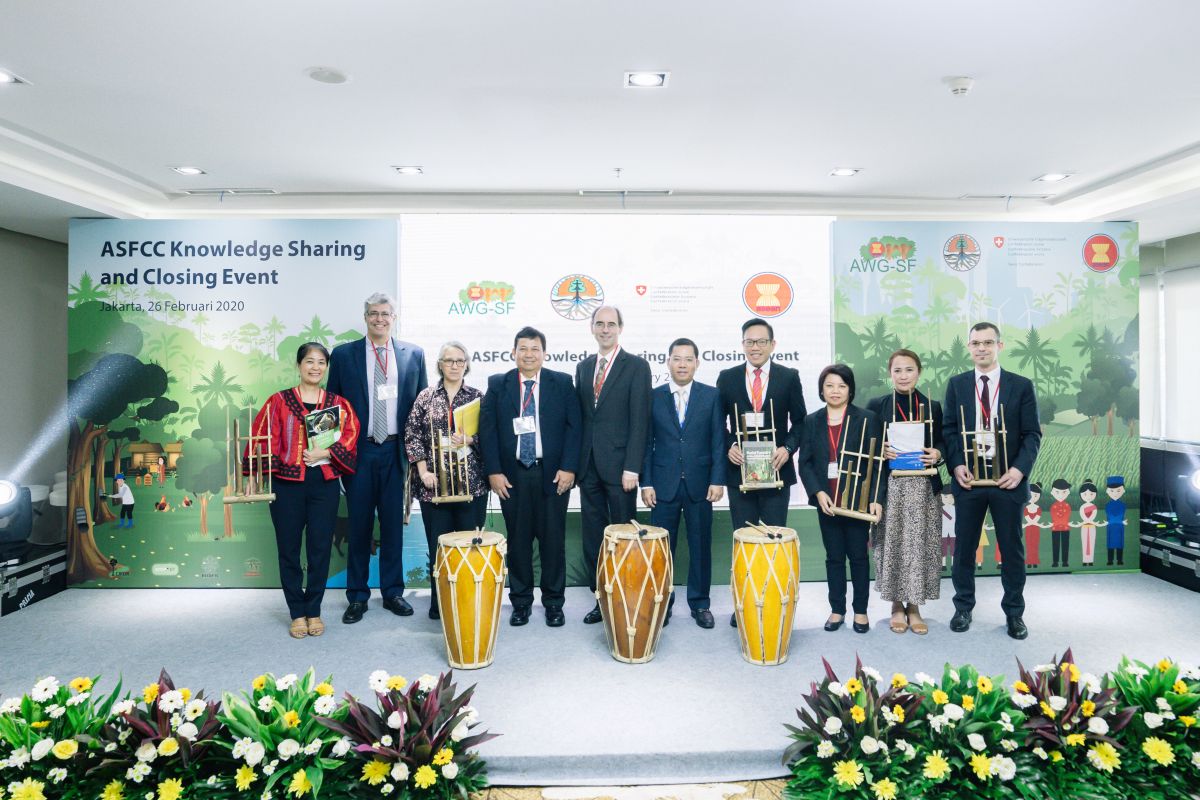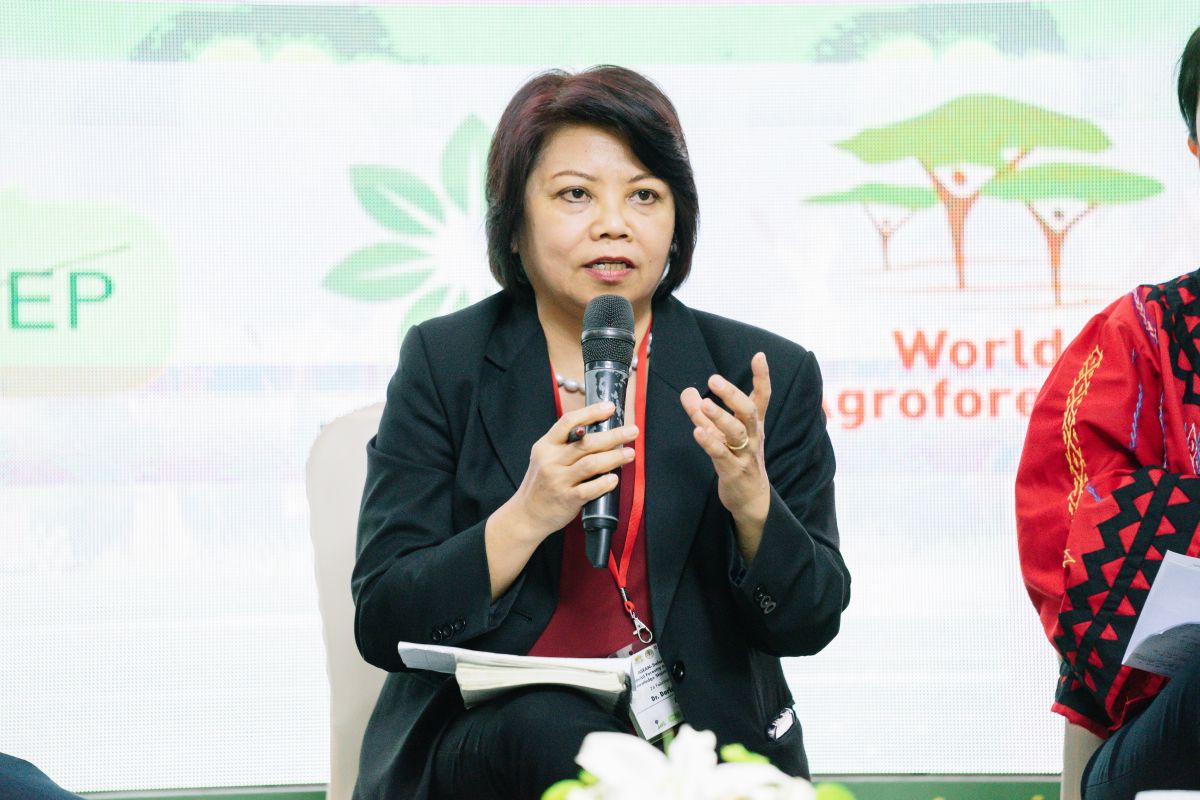ASEAN sees big gains in social forestry, challenges persist

From 2010 to 2020, the number of hectares managed by local communities under social forestry doubled in ASEAN. This achievement is the result of new laws and policies introduced by ASEAN Member States and supported by the ASEAN-Swiss Partnership on Social Forestry and Climate Change (ASFCC). But challenges in tenure and implementation remain to be overcome.
In the past 10 years, Member States of the Association of Southeast Asian Nations (ASEAN) have seen a 100 percent increase in the amount of forests managed by local communities under social forestry. A growing body of evidence suggests that social forestry—a generic term for approaches that countries have used to devolve control over forests to local people—has had positive economic, social and environmental impacts across the region and globe.
These statistics were released at the closing event of ASFCC, held at the ASEAN Secretariat in Jakarta, Indonesia, 25-26 February 2020.
The event explored the achievements of the decade long partnership between ASEAN and the Swiss Agency for Development and Cooperation, which funded ASFCC. Together, the two helped ASEAN Member States develop, reform and implement social forestry policies. ASFCC supported social forestry in ASEAN Member States through the ASEAN Working Group on Social Forestry (AWG-SF), an advisory body to ASEAN Senior Officials on Forestry (ASOF) who set the policy and cooperation agenda for forestry in ASEAN.

ASFCC has five implementing partners: RECOFTC, the World Agroforestry Center (ICRAF), the Center for International Forestry Research (CIFOR), the Non-Timber Forest Products Exchange Programme (NTFP-EP) and the Southeast Asian Regional Center for Graduate Study and Research in Agriculture (SEARCA). These partners conducted research, provided policy advice, implemented training, funded pilot projects, organized learning exchanges and supported deliberation among forest stakeholders from governments, civil society organizations, the private sector and communities.
“This work brought together people, often for the first time, to hear each other’s opinions and understand the evidence presented by organizations involved in the partnership,” said Doris Capistrano, senior advisor to ASFCC, at the event. “This, in turn, has led to widespread improvements in policies and practices across the region.”

Today, many countries in ASEAN have adopted or are about to adopt new or significantly revised social forestry laws, including Cambodia, Indonesia, Lao PDR, Myanmar, Thailand and Viet Nam. These significant policy achievements have been accompanied by institutional changes. Indonesia, Lao PDR, Malaysia, Myanmar and Viet Nam have all restructured certain ministries to support social forestry. These countries have provided clear mandates, roles and budgets to social forestry units within the ministries responsible for forestry.

Yet challenges remain for social forestry in ASEAN. Economic growth in the region is rising rapidly, and at an uneven pace, driving conflict over land use and migration. For many communities across ASEAN, land tenure still remains weak and unclear. These challenges significantly undermine the ability of governments to implement and expand social forestry initiatives.
At the event, ASEAN Member States, ASFCC partners and AWG-SF declared their commitment to overcome these challenges. Their plans, according to the Plan of Action for ASEAN Cooperation in Social Forestry (2021-2025), will focus on securing tenure, integrating forestry into the climate change sector, and strengthening human resources as well as ASEAN’s ability to tackle these problems through joint mechanisms.
To learn more about the impacts of the ASEAN-Swiss Partnership on Social Forestry, visit the Knowledge Tree’s resources here. The Knowledge Tree is a web resource that compiles more than a decade of knowledge gathered by ASFCC about social forestry practices in Southeast Asia.
###
RECOFTC’s work is made possible with the support of the Swiss Agency for Development and Cooperation (SDC) and the Swedish International Development Cooperation Agency (Sida).

